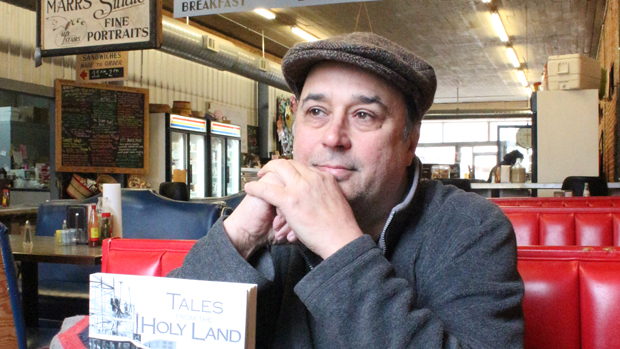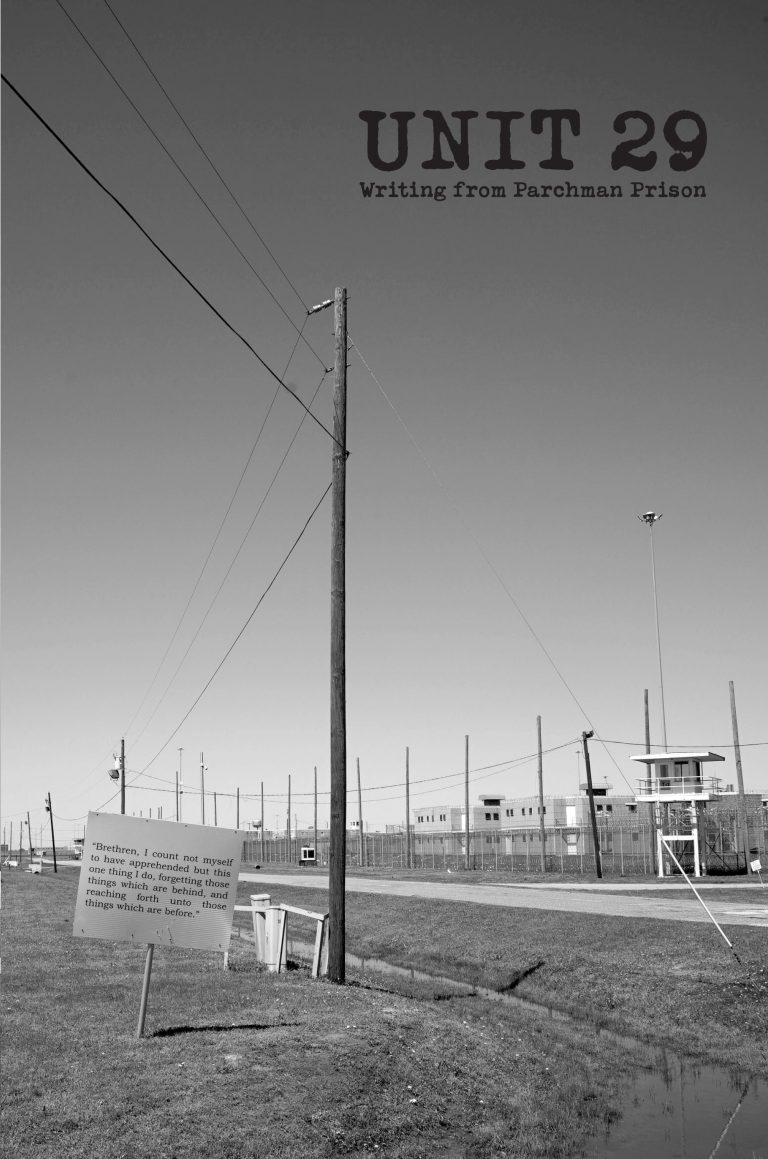
When you are on the road and living in the back of your truck trying to sell short stories to a country that is more interested in lottery tickets than literature, a place like the B.T.C. Grocery in Water Valley, Mississippi, is an oasis.
 Fresh fruit and vegetables grown by local farmers, homemade biscuits complementing eggs laid within 20 miles of the store, strong coffee with gratis refills, and free Wi-Fi; all under the roof of a family business vibrating to the indelible spirit of Mahatma Gandhi: BTC —“Be The Change that you wish to see in the world.”
Fresh fruit and vegetables grown by local farmers, homemade biscuits complementing eggs laid within 20 miles of the store, strong coffee with gratis refills, and free Wi-Fi; all under the roof of a family business vibrating to the indelible spirit of Mahatma Gandhi: BTC —“Be The Change that you wish to see in the world.”
I left Baltimore on February the 5th hoping to escape the unrelenting winter, visit old friends, meet new ones and sell some copies of my new book, Tales from the Holy Land.
Freezing weather dogged me through Chapel Hill and Charleston, relented a bit in Conrad Aiken’s Savannah, made the gulf breezes of Pensacola too nippy for wading and blew a sharp wind in what little hair I have left as I walked a levee to look at tugboats in the Bywater neighborhood of New Orleans.
By the time I cruised Highway 61 north through the fabled Mississippi Delta—eating Argentinean shrimp and Louisiana crawfish at Crustaceans in Cleveland and paying my respects to the ghost of Charley Patton at Dockery Plantation nearby on Highway 8—yet another polar vortex was the hellhound on my trail.
So it was with gratitude and much relief that I landed in Water Valley with the artists Pati D’Amico and Bill Warren the day of my March 2nd reading at the Bozarts Gallery on Main Street.
Just the night before, I had appeared on a bill in Indianola with a 70-year-old bluesman named “Guitar Charlie” at the Gin Mill restaurant next to the B.B. King Museum. One person showed up and he spent his money not on books but Budweiser. Lots of Budweiser.
I gathered club owner Tom Bingham and his assistant, Tim, close to the bar along with Guitar Charlie and Budweiser Bobby and read aloud a story from a 1985 visit to the Delta when I interviewed an aged sharecropper named Cleveland Jones who played the broom.
“I started hearing the blues when I was just a boy of 11, already working the fields” said Jones, who was 71 in ’85. “I’ve been having trouble ever since. A man tries to make a living and he can’t.”
When I was finished, they applauded and I packed up my books and lit out for the Mississippi hill country.
 That’s life on the road: a sleeping bag in a pick-up truck, a jar of peanut butter, instant oatmeal, gas money, cheap highway coffee, and giving away more books than you sell. And faith that it means something, whether it appears to or not, faith that something better will come your way at the next gig down the line.
That’s life on the road: a sleeping bag in a pick-up truck, a jar of peanut butter, instant oatmeal, gas money, cheap highway coffee, and giving away more books than you sell. And faith that it means something, whether it appears to or not, faith that something better will come your way at the next gig down the line.
And the next gig (and a warm bed) was in Water Valley, where an afternoon crowd of some 20 people heard me read a story from “Tales” about fate and free will called “The Sacred Heart of Ruthie.” One woman in the back cried through most of it. It turns out she was from Baltimore and grew up in the neighborhood, long turned to slums, where the story takes place.
And they bought books, plenty of books to take me from the red to the black and my gas tank from empty to full.
At Pati and Bill’s—a beautiful, century-old home of art and books and good cheer—I enjoyed homemade vegetable and rice soup, had a shower and a room of my own where I slipped under a pile of blankets to read The Brothers Karamazov and thank the God of Israel for good friends.
I would have been in the truck that night and the night before—Sunday March 2 and Monday March 3—as temperatures fell below 15 degrees; in the truck because I have been making just enough money selling books in each town to put gas in the truck to make it to the next town.
And that would have been tough (especially when you have to pee in the middle of the night) but it would have been okay.
Because the good thing that has not yet happened waits in the next town down the line.
Rafael Alvarez is an American author based in Baltimore and Los Angeles. Alvarez went to work for the Sunpapers of Baltimore as a teenager before landing on the City Desk. He was with The Sun from 1977 – 2001. After leaving the paper, Alvarez worked on ships as a laborer before joining the staff of the HBO drama The Wire. He also worked on the NBC crime dramas Life and The Black Donnellys. Email him at orlo.leini@gmail.com or learn more at alvarezfiction.com.
–
This article was originally printed in The Local Voice #199 (published March 6, 2014). To download a PDF of this issue, click HERE.


